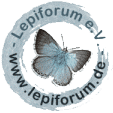Version 5 / 8 vom 15. Oktober 2023 um 13:33:45 von Michel Kettner
Länder:

 +5Kontinente:AS
+5Kontinente:AS


 +5Kontinente:AS
+5Kontinente:ASInhalt
1. Lebendfotos
1.1. Falter
1: Thailand, Khao Sok, 2. Januar 2013 (fot.: Florian Nantscheff), det. Rolf StrickerForum
2. Diagnose
2.1. Ssp. gomata
2.1.1. Weibchen
1-3: ♀, Daten siehe Etiketten (coll., det. & fot.: Ernst Brockmann, Fotos bearbeitet: Michel Kettner)
2.2. Ssp. lalita
2.2.1. Männchen
1-3: ♂, Daten siehe Etiketten (coll., det. & fot.: Ernst Brockmann, Fotos bearbeitet: Michel Kettner)
4-6: ♂, Daten siehe Etiketten (coll., det. & fot.: Ernst Brockmann, Fotos bearbeitet: Michel Kettner)
2.3. Erstbeschreibung
1-2: Moore ([1866]: 783-784) [nach Copyright-freien Scans auf www.biodiversitylibrary.org]
3. Weitere Informationen
3.1. Andere Kombinationen
- Ismene gomata Moore, [1866] [Originalkombination]
- Bibasis gomata Moore, [1866]
3.2. Unterarten
- Burara gomata lorquini (Mabille, 1876)
- Burara gomata radiosa (Plötz, 1885)
- Burara gomata lara (Leech, 1894)
- Burara gomata lalita (Fruhstorfer, 1911)
- Burara gomata kanara (Evans, 1926)
- Burara gomata minda Chiba & Tsukiyama, 2009
3.3. Faunistik
Nach [Global Biodiversity Information Facility] kommt die Art in Philippinen, Indonesien, Taiwan und Vietnam vor.
Locus typicus gemäß Erstbeschreibung: N.E. Bengal.
(Autor: Michel Kettner)
3.4. Literatur
- Chiba, H. (2009): A revision of the subfamily Coeliadinae (Lepidoptera: Hesperiidae). — Bull. Kitakyushu Mus. Nat. Hist. Hum. Hist., Ser. A, 7: 1-102. [zum PDF auf researchgate.net]
- Erstbeschreibung: Moore, F. (“1865”) [1866]: On the Lepidopterous Insects of Bengal. — Proceedings of the Scientific Meetings of the Zoological Society of London for the Year 1865: 755-823, pl. XLI-XLIII.


















